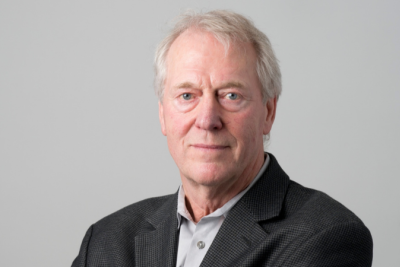Early clues from normal tissue: how sex and smoking influence cancer promotion in the bladder
New findings from team PROMINENT.
PROMINENT is tackling the normal phenotypes challenge. While the accumulation of mutations has long been considered the primary trigger of tumorigenesis, when the challenge was set in 2020, it was becoming clear it wasn’t always that simple. It was becoming increasingly evident that cells often carry many known cancer-causing mutations yet remain phenotypically normal and do not form tumours. The PROMINENT team set out to investigate a hypothesis about the very early stages of cancer development, the promoter hypothesis, in which cells exposed to mutagenic carcinogens accumulate cancer-driving mutations but remain dormant. Only after exposure to a ‘promoting’ stimulus, such as chronic wounding, do these ‘initiated’ cells, through an unknown mechanism, gain a selective advantage allowing them to undergo clonal expansion and progress to malignancy. The team plan to build a ‘roadmap’ as a cell travels along this pathway to transformation, looking for opportunities to intervene at the critical moment of transition and find new routes to prevention and treatment.
PROMINENT is co-led by:
The PROMINENT team brings together advocates and scientists with expertise in epidemiology and human interventional studies, computational biology, mouse and organoid models, genetics and multi-omics imaging, across five institutions in Spain, France, and the US. As well as additional collaborators in Brazil investigating the affect of hot drinks on promoting tumour growth and in Sweden providing spatial transcriptomics.
PROMINENT is broadly considering what makes a cell ‘normal’, focusing on lung, kidney, oesophagus, bladder, gastroesophageal junction, pancreas and colorectal tissues, the team aims to answer four major questions:
PROMINENT is leveraging a unique collection of resources, including a tissue bank of more than 4,000 mouse samples across all stages of carcinogenesis, and an extensively annotated collection of human tumour and paired healthy tissue samples provided by more than 5,000 people across 20 countries. These samples were collected by one of our initial teams, Mutographs, who tackled our unusual mutation patterns challenge. Serial biopsies of normal tissues are also being collected from people participating in intervention studies- so the team can study the effect of weight loss and smoking cessation (potential promoters) on the molecular architecture of normal tissues. To dissect the molecular mechanisms of cancer promotion, a comprehensive range of genomic and screening techniques are being used, in both mouse and human organoid models, in combination with multi-omics approaches. All data are being collected in a central repository and analysed with molecular-evolution and machine-learning models to identify the underlying molecular signatures.
Answering these questions and understanding the mechanisms causing initiated cells to transition to cancer cells could offer new possibilities for intervention and cancer prevention. In particular, the team hopes to investigate a novel group of compounds, which they refer to as ‘promolytics’, which may be able to prevent or reverse the promotion step. The team also hopes their findings will allow development of a test to routinely assess the promotional ability of carcinogens, similar to the Ames test which assesses the mutagenic capability of carcinogens.
The team are well underway, and have already published findings in Science, where they incorporated genetic diversity and exposure to mutagenic agents, as well as promoting factors, to generate a more realistic skin cancer model that reflects the human cancer risk factors. The team investigated the controversial role of stem cells in cancer development by introducing a network approach to look at the expression of stem cells genes in single cells, and how these networks evolve during carcinogenesis. They revealed two main cell states, which can converge, a high plasticity stem cell state and a proliferating state, highlighting that the switch between these states may control progression and drug resistance.
By unravelling the intricate interplay between genetic mutations, cellular processes, and environmental factors, the PROMINENT team hopes to bring a new perspective to fundamental questions surrounding early tumour development and identify new opportunities for intervention and routes to prevention. This proactive approach offers hope for a future where cancer is stopped in its tracks.
To learn more, visit PROMINENT's website, which is managed and updated by the team itself.
